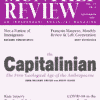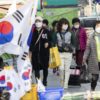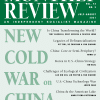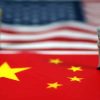
Vouchers for Murder
In order to commit murder or mayhem under this program, vouchers must be submitted within one week prior to the actions contemplated or within a month afterward. Persons who commit violent acts without valid vouchers will be asked to enter into Voluntary Consent Agreements to desist from unauthorized murder or mayhem, and up to one tenth of any ill-gotten gains will be donated voluntarily to the charity of their choice, without any implication of admission of guilt. | more…

The Synthesizing Impulse: J. B. S. Haldane
By any standards, John Burdon Sanderson Haldane (1892–1964) was a fascinating man. An eminent scientist, prolific writer and speaker, fiery political activist, and all-round colorful character, he has been the subject of several full-length biographies and multiple biographical sketches. | more…

The legacy
A new poem by Marge Piercy. | more…

Herd impunity?
A new poem by Black Agenda Report poet-in-residence Raymond Nat Turner. | more…

September 2021 (Volume 73, Number 4)
In 2004, Washington launched a whole new strategy of financial war, based on the role of the U.S. dollar as the hegemonic foreign-exchange currency, to cut off the economic circulation of targeted states. The United States has created, as part of its “rules-based international order,” a coercive global framework extending U.S. financial jurisdiction to every country, economic entity, and person engaged at any point in U.S. dollar transactions anywhere in the world. | more…

The Capitalinian: The First Geological Age of the Anthropocene
Assuming that the Anthropocene will soon be officially designated as the earth’s current epoch, there remains the question of the geological age with which the Anthropocene begins. Adopting the standard nomenclature for the naming of geological ages, the term Capitalinian is proposed as the most appropriate name for the new geological age, conforming to the historical period that environmental historians see as commencing around 1950, in the wake of the Second World War, the rise of multinational corporations, and the unleashing of the process of decolonization and global development. | more…

Not a Nation of Immigrants
“Nation of immigrants” discourse is generally used to counter xenophobic fears, but the ideology behind it also works to erase the scourge of settler colonialism, the lives of Indigenous people, and the history of enslaved Africans and their descendants. | more…

COVID-19 in the Two Koreas
The two Koreas—sharing a language, cultural traditions, history of imperial conquest and war, and interrupted family connections—both have mostly succeeded in controlling the pandemic, within different political-economic systems and with markedly different methods. | more…

Cooperation Has a Meaning: François Maspero and Monthly Review
In 1970, the French left-wing filmmaker Chris Marker made a twenty-minute documentary about the French left-wing publisher François Maspero. Fleetingly, we catch a glimpse of two publications pinned side by side on one wall, seemingly granted special placement: a copy of The Black Panther newspaper and a Monthly Review. Hardly surprising is this prominence: Maspero’s relationship with Monthly Review was always fraternal, both interfaced with one another, shared lists. Together, they helped define what that New in the Left would mean. | more…

Building a Vision of the Good Life
The crux of Kate Soper’s Post-Growth Living is simple: we need to redefine “the good life.” We need to move away from a culture that equates the good life with endless consumption and toward one that equates it with experiences that are not defined by the market. Not only is this transition ecologically necessary, but it will also lead to fairer, and far more pleasurable, experiences. | more…

July-August 2021 (Volume 73, Number 3)
This special issue of Monthly Review is devoted to the New Cold War on China. What has been the view of the Chinese Revolution presented in Monthly Review in the past seven decades? How has it changed over time? As Paul A. Baran observed: “Marx and in particular Lenin being master-tacticians shifted horses and arguments as conditions changed (rightly so, to be sure!)” The question then becomes not the changing views themselves, but how these shifts in perspective reflect changing historical circumstances. | more…

The New Cold War on China
The imperialist world system, crowned by U.S. hegemony, is now threatened by China’s seemingly inexorable rise and pursuit of its own distinctive sovereign project. In this respect, the Trump administration’s prosecution of a New Cold War on China was no anomaly, but rather the inevitable U.S. response to China’s rise and the end of Washington’s unipolar moment. The Biden administration has made it clear that it not only intends to continue the New Cold War, but to accelerate it. | more…

Is China Transforming the World?
In most mainstream Western media, China is now presented as a threat, a conquering “empire.” Still the global hegemon, the United States is worried about the Chinese rise in strength, and their successive administrations are building the anxiety-provoking image of a China eager to supplant it and steal its leadership of the capitalist world system. | more…